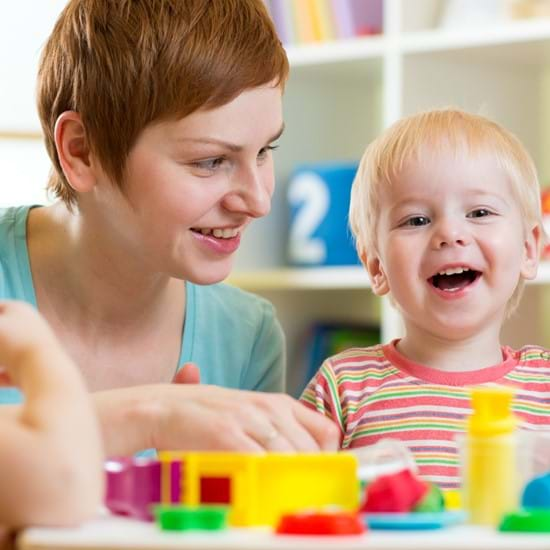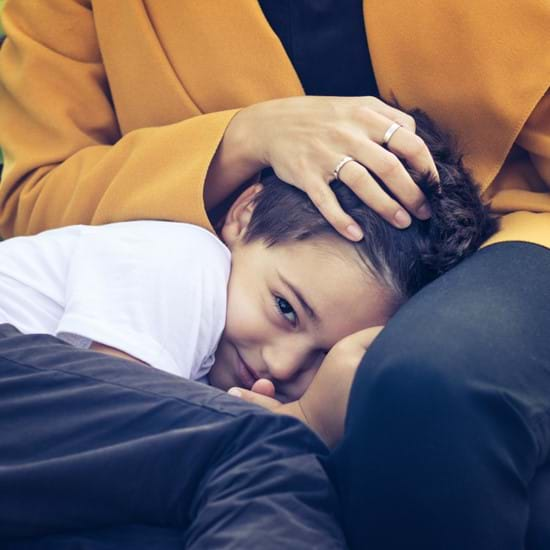
10 Tips to Ease the Arrival of a Second Child

Written by: Nanny Secours
Knowing that your family will soon welcome a second child is great news. Within any type of family, this means change for everyone, and raises a fair share of questions. How will your firstborn react? How will you be able to love this second child as much? How will you get ready? These questions are all completely normal.
Here are 10 tips to ensure the transition into this new reality goes smoothly for the whole family, especially your firstborn.
Before baby’s birth
- Tell your first child about baby’s arrival: This is important for your child to feel included in the planning process. You should also share this news with your child around the same time you announce it to everyone else―he or she should hear it from you and not someone else. You might not realize it, but the whole concept of pregnancy may seem vague to your oldest. Telling a 2-year-old that a new baby will arrive in 6 months is like learning you can expect a life-changing event in seven years when you’re 28—that’s a quarter of your life away! It’s hard for a child to perceive an event that far in the future, but you can prepare your child (and yourself) for this monumental change.
- Explain what’s happening during your pregnancy: Explain the changes to your body, as well as the nausea, the fatigue or irritability you may feel. It’s important your firstborn understands why these things are happening. You don’t have to get into details; it can be as simple as “I’m tired because I need more energy to help the baby grow”. Don’t worry; you will find the right words.
- Don’t force changes at the same time: If your firstborn still uses diapers after your 5th month of pregnancy, its best to wait before you start the potty training. The arrival of a baby brother or sister is already a lot to take in, no need to disrupt your child’s routine further. The same goes for other major changes, such as changing beds or bedrooms.
- Involve your oldest in the nesting process: Ask for your firstborn’s opinion and help regarding baby’s nursery, clothes or toys. Your firstborn will feel important and involved, thus lowering the risk of negative reactions.
- Wait for your child to ask questions: Saying things like: “I will love you even when the baby arrives,” may trigger thoughts that hadn’t even crossed your child’s mind yet. If your child asks this question, give a simple, straightforward answer like: “Of course I will still love you, my love is unlimited!” And don’t worry about having to share your love between your two children: after you give birth, your love will simply multiply.
Once the baby is born
- Have a relative visit with your first child so that he or she can meet baby!
- Hand over the baby to your relative and spend some time alone with your oldest to show them that this new addition to the family in no way diminishes your love or the importance of your firstborn.
- Make your oldest feel special with a gift, such as a big sister necklace or a big brother t-shirt.
Once you’re back to your daily routine
- If possible, keep to your old routine: Your firstborn will be relieved to see that even with this new member, family life remains the same. Making sure their bedtime routine doesn’t change, for example, will show them that everyday life is just like it was before.
- Let your oldest help with the baby: Ask your firstborn to get a diaper or bring you your breastfeeding pillow. This gives him or her a role to play and a sense of purpose. It’s also a great way to nurture a little independence.
In the end, the more your family life remains the same, the less chances there are that your oldest child will have a negative reaction to this new arrival. There’s no denying that this will be a big adjustment, but who said it had to be negative for your firstborn?
I wish you all the best with your now bigger family. Enjoy all the laughter, managing, questions, joy, love, and even the baby cries that make up this wonderful experience.
Julie Lachapelle, family coach
Member of the Nanny Secours network


